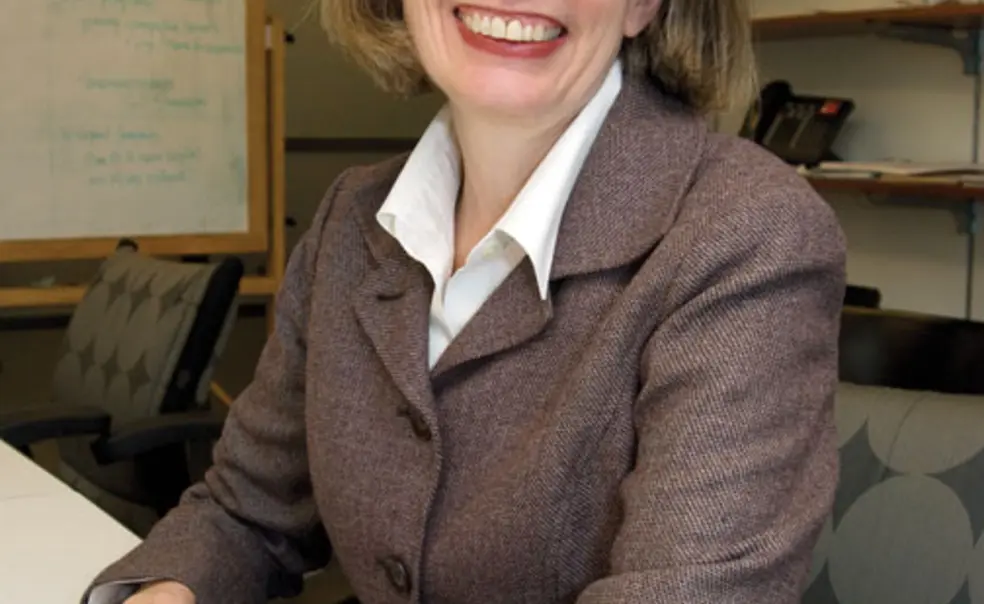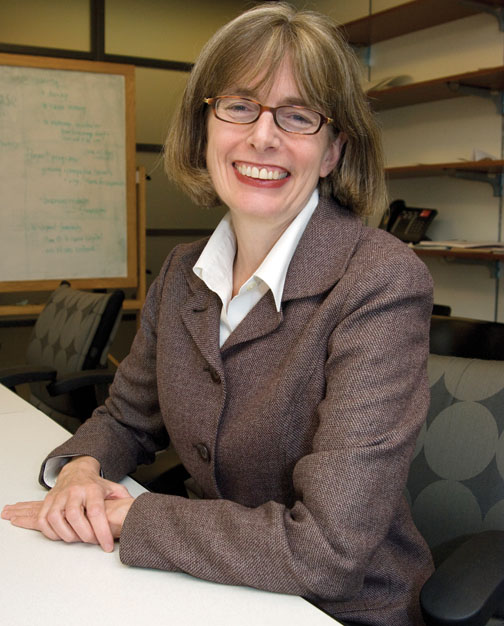A moment with ... Clara Hemphill *80, on public schools
Navigating the world of New York City schools can be a challenging undertaking. Clara Hemphill *80, a Pulitzer Prize-winning journalist, is the author of three guides to city schools and the founding editor of the Web site insideschools.org. The mother of two children who attend public high school, Hemphill also is a senior editor at the New School’s Center for New York City Affairs, a public-policy research center.
Has the school application process become too complicated?
I think we have to spend much more energy improving the local neighborhood schools and much less in trying to make a complicated system of school choice more equitable. Nationally, we have to think more about federal funding for schools and worry a lot less about local control. It’s just not fair that rich suburbs can spend a ton more money on their schools than poor rural or urban areas.
Since federal funding of local schools seems unrealistic in the foreseeable future, what else could we be doing?
New York City has raised teacher salaries, which has helped attract higher-quality candidates to teach in the public schools. It is important to encourage more people to become teachers. You have a lot of people who love children’s literature going into elementary education. You don’t have a lot of people who just love mathematics going into education, and we need more of them.
Do we put too much emphasis on what money can buy and not enough on teaching basic skills, as we did in the past?
I don’t think there was a mythical past. In the old days, you could drop out of high school and get a good job in a factory that would support a family. Education ought to prepare children to be citizens in a democracy, and the demands of citizenship today require a higher level of education. Getting everyone to that level is going to cost a lot more money.
Has the No Child Left Behind law made a difference?
No Child Left Behind has not made things better, and probably has made things worse. In New York, it has meant increased emphasis on test preparation for English and math and a squeezing out of everything else in the curriculum. That’s a problem, because kids have different interests and can latch onto different things. If you are good in science, you may learn to read a book about volcanoes with more energy than if you were only doing test prep for English. The other problem is that because each state decides proficiency levels, the tests get easier and easier. Results appear to be going up, but what we really have are higher results on easier tests.
Are charter schools — independently run public schools — a solution?
Some charter schools are quite good, and some are worse than the public schools they replace. The good ones provide an escape for kids who can take advantage of them, but they do nothing to improve the neighborhood schools that the vast majority of kids still attend. In fact, they probably make it harder for the neighborhood schools because they drain them of the most active, dedicated, and stable kids and parents.
What should parents look for in choosing an elementary school?
Look for teachers who can adapt to each child’s abilities and interests. One way parents can spot that is to visit the school and look around. If all the kids are on the same page in the same book, half of them are probably bored and the other half are probably lost. If you see one child reading Charlotte’s Web while another is reading a book about volcanoes, that is probably a sign that the teacher tries to adapt the curriculum to each child.
Do parents worry too much about which school their children attend?
It’s very hard to give up your child into the care of strangers, but the truth is that you have no idea, when your child is 2 or 3, what he will be like at 18. Some of the private schools sell a kindergarten-through-12th-grade package, which makes you feel that if you get your child settled in kindergarten, you have the next 13 years under control. But the school that is fine for the elementary grades may not be fine later on. My husband is a kayaker, and he says that when you are going through the rapids, you need to focus on the white water that’s right in front of you and not look too far down the river. I advise parents to find the best school for right now and not worry too much about what will happen in 10 or 12 years.
— Interview conducted and condensed by Mark F. Bernstein ’83













No responses yet